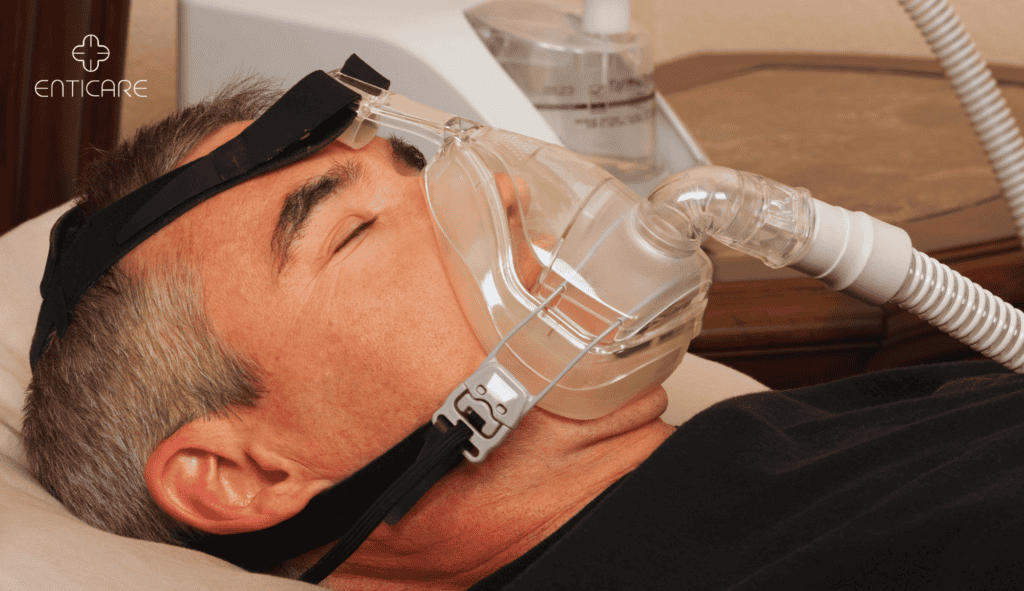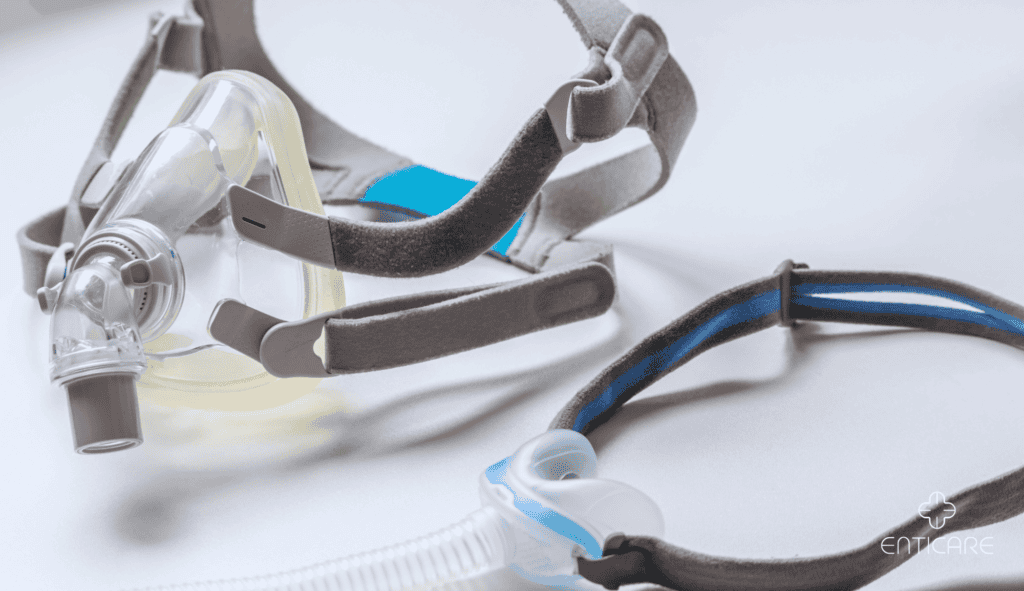Curious about how your CPAP machine can “talk” to your doctor? Remote monitoring technology is revolutionizing sleep apnea treatment, offering valuable data for better therapy management.
CPAP therapy is a lifeline for millions with sleep apnea, ensuring open airways and restful nights. These machines deliver pressurized air through a mask, keeping airways open for restful nights. But what if technology could enhance CPAP treatment even further? Enter remote monitoring – a revolutionary tool offering benefits for both patients and doctors.
Remote monitoring for CPAP machines utilizes technology to wirelessly transmit data about your therapy’s usage and effectiveness. This blog delves into the functionalities of remote monitoring, explores its benefits for both patients and doctors, and empowers you to discuss this innovative technology with your doctor for a more streamlined sleep apnea management experience.

Understanding Remote Monitoring in CPAP Machines
Remote monitoring in CPAP machines leverages technology to collect and transmit data about your therapy usage and effectiveness to your doctor or a healthcare provider remotely. Here’s a breakdown of how it works:
-
- Data Collection: Modern CPAP machines are equipped with built-in modems or connect to external devices that collect data throughout your sleep therapy session. This data might include:
- Usage Statistics: Tracks how often you use the CPAP machine and the total duration of therapy per night.
- Leak Rate: Monitors any leaks from the mask during sleep, ensuring optimal pressure delivery.
- Apnea-Hypopnea Index (AHI):Provides an indicator of how often your breathing stops or shallows during sleep.
- Event Data: Tracks specific events during sleep, such as central apneas or hypopneas.
- Data Transmission: The collected data is securely transmitted wirelessly via cellular networks or Wi-Fi to a cloud-based platform accessible by your doctor or healthcare provider.
- Benefits for Both Patients and Doctors: Remote monitoring offers a win-win situation for both patients and healthcare providers involved in sleep apnea treatment.
- Data Collection: Modern CPAP machines are equipped with built-in modems or connect to external devices that collect data throughout your sleep therapy session. This data might include:
Why Remote Monitoring Matters for Patients
-
- Improved Convenience: Eliminates the need for frequent in-person clinic visits for data analysis and therapy adjustments.
- Enhanced Communication: Provides a platform for more frequent communication with your doctor regarding any concerns or questions.
- Early Intervention: Allows doctors to identify potential issues (leaks, low adherence) and address them remotely to optimize therapy.
- Proactive Management: Empowers you to actively monitor your own therapy data and track progress towards a good night’s sleep.
Why Remote Monitoring Matters for Doctors
-
- Increased Efficiency: Streamlines data analysis and allows for remote adjustments to therapy settings as needed.
- Improved Patient Care: Enables doctors to monitor patients more closely and intervene proactively to address any issues.
- Enhanced Patient Engagement: Facilitates better communication with patients and fosters a collaborative approach to treatment.
- Data-Driven Decisions: Provides valuable data to personalize therapy plans and optimize long-term sleep apnea management.

Considerations and Privacy
-
- Data Security: It’s crucial to choose a CPAP machine and remote monitoring system with robust data security protocols to ensure patient privacy.
- Patient Comfort: Some users might find the idea of remote monitoring intrusive. Open communication with your doctor is key to address any concerns.
By embracing remote monitoring technology, both patients and doctors can unlock the full potential of CPAP therapy. With real-time insights, proactive intervention, and enhanced connectivity, remote monitoring enhances patient care, improves treatment outcomes, and strengthens the patient-doctor relationship. Take the first step towards a more connected and effective sleep therapy experience by exploring remote monitoring options with your healthcare provider today. And if you have any questions, don’t hesitate to contact Enticare, our expert team is here to assist you every step of the way.

